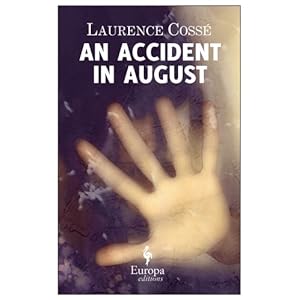I scrolled up to the top of the page and, to my horror, I realized that I had put the title of the excel document on line number 1 and then skipped to line number 3 to begin my list of books read! Can you imagine? I was two short of my goal! I almost didn't admit my folly but....at this point it had become a matter of pride and I was so discouraged. I had pretended I didn't care about the numbers yet as I closed in on the 100 mark I realized that I did care - deeply. There was only one thing to do.
Don came to the rescue. He actually read through all my blog posts for the year and found not two, but three titles that I had blogged about but failed to add to the list. His persistence got me over the top. Now that's what I call love.
 So here's how I spent the holiday weekend - reading about a garden in the south of France, lifting my face every few minutes to gaze upon our own garden in the south of Florida. I never would have dreamed that I would derive such pleasure from watching seeds grow.
So here's how I spent the holiday weekend - reading about a garden in the south of France, lifting my face every few minutes to gaze upon our own garden in the south of Florida. I never would have dreamed that I would derive such pleasure from watching seeds grow.This absolutely delightful book by Richard Goodman about his year living in a wonderful old stone house in a 250 member village outside Nimes was the perfect antidote to all the dark, dysfunctional tomes I've been reading lately. How many of us don't wonder every once in a while what it would be like to just walk away from job, friends, family, and reinvent ourselves in a new place? Such a courageous move!
Goodman says he's been a city boy his entire life but the ad in the paper and his Dutch girlfriend called to him to try something new. Once in St. Sebastien de Caisson, a name he invented to protect the village from Peter Mayle syndrome, Richard found that if he wanted to relate to the townspeople he would not have to worry about speaking French as much as he would have to learn to speak "garden." Agriculture was his way into the closed village society and the size of your melons and tomatoes was much more important than the size of......well, you get the idea.
Goodman found the generosity of the townspeople to be overwhelming. Even as they teased that an American had no clue how to work with his hands, they lent him theirs in abundance. Land, water, seeds, hoes, trenchers, buckets, you name it. His new friends watched with fascination as Richard threw himself into his vegetable garden with a naive passion that endeared him to everyone.
His description of the air, the light, the smells of the land in the Vaucluse area of France is overwhelming. The joy of discovery at one's ability to coax food from the earth is such a difficult emotion to explain yet he does so with such verve or, as they say in France, joie de vivre. I can't say enough about this glorious piece of travel writing. It will always be one of my favorite genres.
Adding a postscript here, as Mr. Goodman has, by some wild mystery of the Internet, found my blog about his book and taken the time to comment - a compliment I'll never get over when it happens - I love writers! Thought I'd take a moment to add a link to his site in case you're interested in learning more about him and his writing. http://www.richardgoodman.org/


 This young woman is no stranger to awards. She has been a Stegner fellow at Stanford, a writer in residence at the University of Mississippi, and is currently a teacher of creative writing in Alabama, but still one has to wonder how someone so young could plumb the depths of despair that are so evident in her National Book Award winning novel Salvage the Bones.
This young woman is no stranger to awards. She has been a Stegner fellow at Stanford, a writer in residence at the University of Mississippi, and is currently a teacher of creative writing in Alabama, but still one has to wonder how someone so young could plumb the depths of despair that are so evident in her National Book Award winning novel Salvage the Bones.










